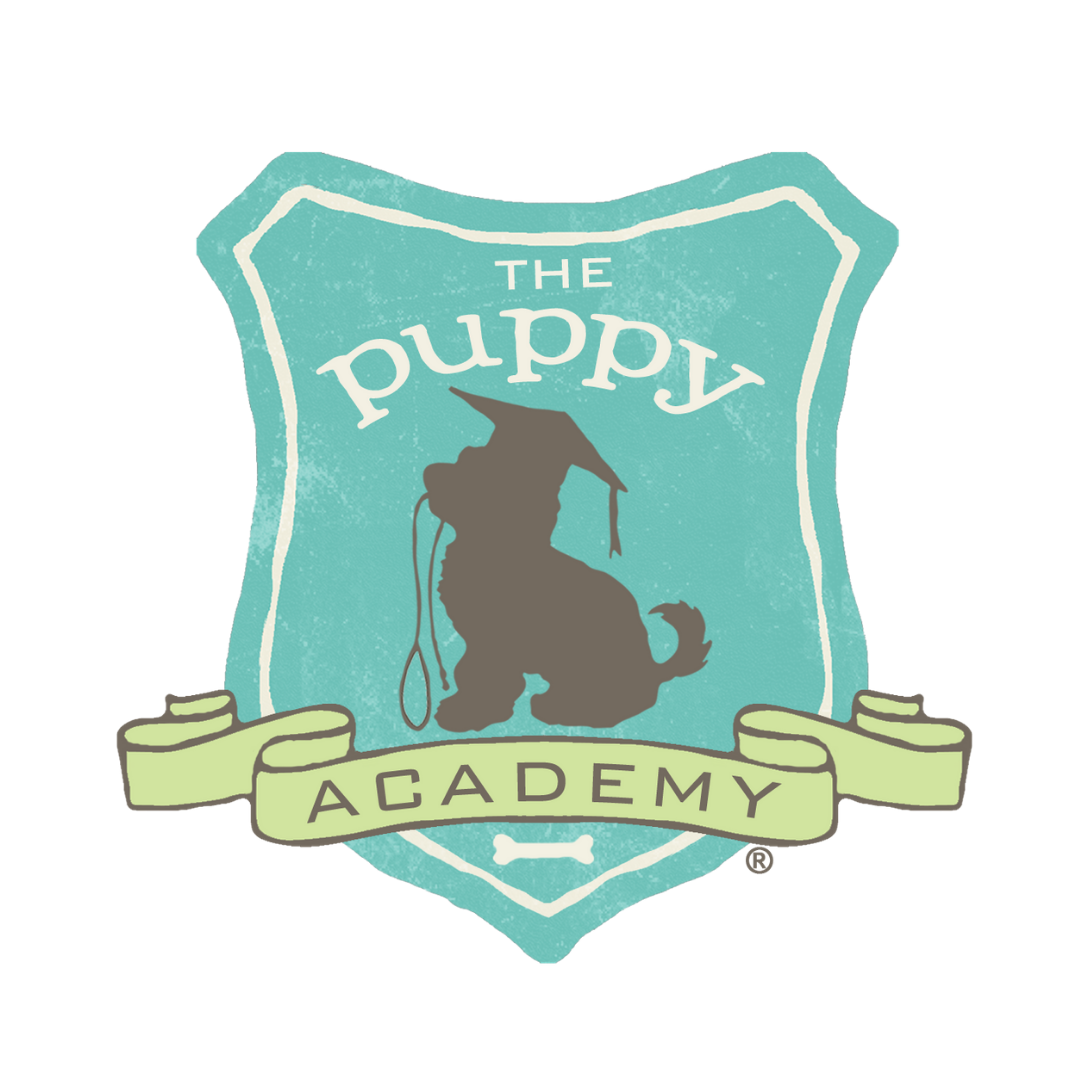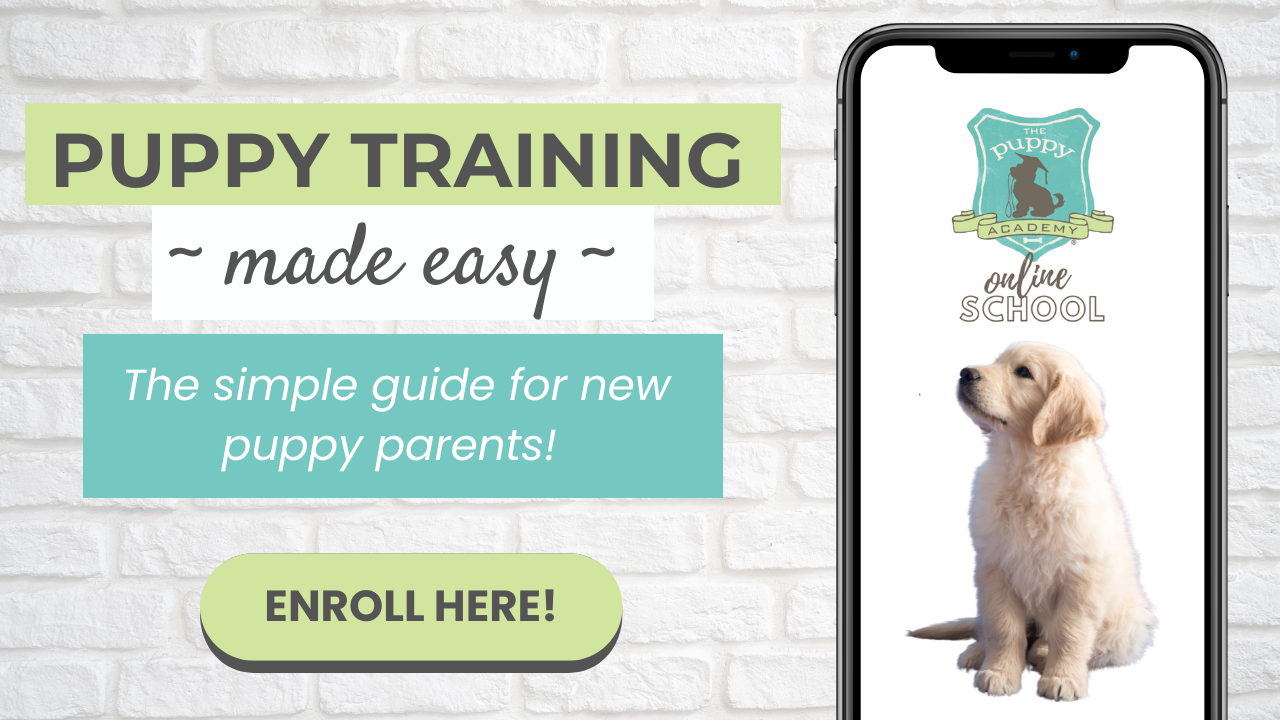New puppies are such a wonderful addition to any family! There’s nothing like playing and cuddling all day long...but all night long? Here’s how you can help your pup (and you!) get some rest!
The Puppy Academy student: Cookie!
You brought home a new puppy and the first day went on without a hitch! Now it’s time for bed so you place your pup in their bed, turn off the lights, and head off to your bed when suddenly --- that sweet calm pup breaks out into a full-blown orchestra of whining, yowling, and barking!
Pup parents, is this happening to you? With a new baby or puppy, it’s expected that those first few nights will be tough and sleepless. And before you continue forward, it’s important to establish that there isn’t a guaranteed way to stop your puppy from whining or sleeping completely through the night, just as there isn’t for a human baby. It’s a natural part of growing up! But luckily where a pup’s case is concerned, there are ways to help cut down the number of sleepless nights and teach your puppy to feel safe and confident to sleep on their own!
Create a Daily Puppy Schedule
One of the first things we share with all our students’ parents of The Puppy Academy is the importance of getting your puppy on a structured schedule asap! This is an invaluable tool that you will use while your puppy is growing up and learning the routines of the household. In our “Create a Daily Schedule for Your Puppy” blog we give you step-by-step instructions on what you need to include from feeding times, playtime, potty breaks, and naps. Use it to help create your own!
When a young puppy comes to a new home for the first time, they are trying to understand and adapt to their new environment and family. Establishing a schedule is especially important when potty training, promoting good eating habits and sleeping routines, plus it encourages their confidence and bond with you. Having a daily routine makes your puppy’s world more predictable so they instinctively relax more, knowing what’s coming up next.
Give Your Puppy Enough Playtime AND Naptime
In your puppy’s list of daily activities, make sure they have enough playtime and training exercise to help stimulate their minds and burn off some of that excess puppy energy! Young pups need A LOT of sleep, roughly eighteen hours, so interspersing their playtime throughout the day will help manage their bouts of energy and provide ample opportunities for them to get their needed rest. If you notice your puppy exhibiting behaviors like becoming more nippy, barky or whiney during play, that can be a sure sign that they are overtired and need a nap! When possible, try ending playtime before this begins to happen to help your pup settle down and fall asleep faster, as opposed to trying to calm them from a more amped up state, which can make it more challenging.
Nighttime Potty Breaks
Puppies are still developing and can’t hold their potty for long periods of time. Even though during the evening their potty frequency isn’t as high as during the day when they are active, you should still preplan your pup’s nighttime visits outside ahead of time, if you’re dealing with a younger pup. A good general guideline is to take your puppy out at night before bed, then once more in the middle of the night, and again first thing in the morning. Limiting water intake a couple hours before bedtime, along with crating your pup overnight can help them make it through the night as well! If you want to find out more about managing potty training while getting your puppy to sleep at night, check out our “Potty Training Your Puppy: Tips for New Owners!” blog.
Establish a Bedtime Routine
The Puppy Academy student: Hendrix!
A puppy will eventually settle down when they’re tired enough and if they are encouraged to relax. Think about taking the last thirty minutes or so before bed to wind them down. Avoid playing games or letting them play with toys that will keep them very alert, rather give them a chew toy and keep the energy around them more lowkey, which may mean hanging out in another room with less activity going on, if you have a busy family!
Set Up a Safe and Comfortable Sleep Space
Create a space for your puppy that gives them a safe, cozy spot where they can rest and begin associating with relaxing. Whether you’re using a playpen or a crate, set up this area in a spot in your home where your pup will be left undisturbed when sleeping.
We love to set up a “zen room” for pups to help set the stage for a peaceful night’s sleep! Take a look at our “Why and How to Crate Train Your Puppy” blog for more info on creating your own zen room plus tips on how to get your puppy more comfortable with their crate, if you’re using one!
Other Sleep Tips
The Puppy Academy student: Meeka!
A restful vs. a full night’s sleep is the goal here for those first initial weeks! New puppies are adjusting to their new home, new family, and missing their siblings, so waking up to some crying, barking, or for a potty break is completely normal and to be expected in the beginning!
But with the tips we covered, you can start experimenting with what works best for your pup and extend those sleep chunks of time as your pup becomes acclimated and more comfortable with their new environment and routine!
Here are a few more things to remember to consider when getting your pup to sleep throughout the night:
When you do need to wake up your puppy to go potty, keep it matter-of-fact. The last thing you want is your puppy to think that it’s playtime and get revved up again! Simply let them out to potty and then bring them right back to their sleeping area and go back to bed yourself.
Do your best not to give in to the puppy eyes and whining! It’s hard, we totally understand that, and you want to be there for them. If you do need to remove your pup from their crate or playpen, wait for a few seconds of silence before letting them out, or else they will start associating that making noise equals attention from you! Doing this will help these behaviors to pass more quickly and help curb separation anxiety issues developing down the road.
Don’t give your puppy food or water right before they go to bed! It’s a given that if they will need to go out if you do so, but also increases the chance for potty accidents throughout the night.
Preplanning is key when it comes to anything puppy related. If you know you're bringing home a new pup, expect some long nights. Consider speaking with your work about getting some time off while you go through this process, especially for the first few days. And if possible, don’t shoulder the responsibility of taking your pup out each night. Rotate the task with your other family members so you can count on getting some sleep on certain nights!
Arm yourself with a white noise machine and earplugs. A white noise machine can help soothe your pup but also drown out some of their nighttime cries and barks for you! Of course, the earplugs can add that extra sound barrier for you too!
Lastly, you will get through this! All puppies experience the scary feeling of being someplace new without their mom and littermates. It’s a process of learning that their new home is safe and feeling comfortable in their new space. And every puppy is different in the amount of time it takes them to get through this learning phase. The best thing to do is take it with stride, continue the schedule you established each day, and stay consistent so your puppy becomes comfortable with their new overnight sleeping routine more quickly.
And if you want more 1-on-1 professional guidance with this to get your puppy sleeping through the night faster, join us in our Online Puppy School for step-by-step puppy training help with advice customized for your puppy:
Have more questions about getting your puppy to sleep through the night? Ask our trainers LIVE every Wednesday at 1 pm PT on our Instagram @thepuppyacademy during our Ask A Puppy Trainer Show! All replays are posted afterward, and you can catch up on our last ones on our YouTube channel or Podcast.
Become a Puppy Academy VIP (Very Important Puppy) member to get our latest puppy training tips direct to your inbox, for free, each week!
Check out these blogs related to puppy training and more!
I Got a Puppy Over the Holidays! Now What?!
How to Calm an Over-Excited Puppy!
Puppy Feeding Guide for New Owners!





